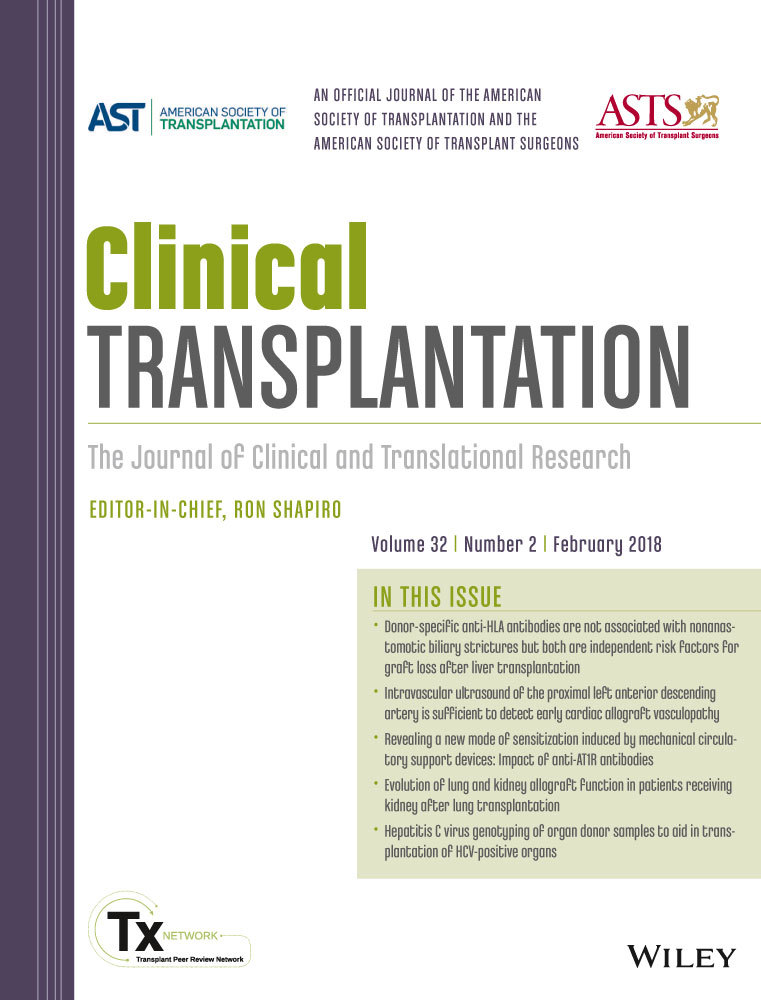Revealing a new mode of sensitization induced by mechanical circulatory support devices: Impact of anti-AT1R antibodies
Abstract
Background
Increased levels of angiotensin II type 1 receptor (AT1R) antibody have been shown to be associated with allograft rejection. This study aims to determine the rate of development of antibody to AT1R after mechanical circulatory support device (MCS) implantation, and if the development of strong binding AT1R antibodies is associated with survival.
Methods
Eighty-eight patients who had one MCS implantation were accessed based on serum availability. Mechanical circulatory support devices in this cohort included pneumatic bilateral paracorporeal ventricular assist device, continuous flow left ventricular assist device, and total artificial heart.
Results
Of 88 patients, seven patients had AT1R antibodies ≥40 U/mL preimplantation. For 81 patients who had AT1R antibodies <40 U/mL, the median value was 8 U/mL. Of these 81 patients, AT1R antibody levels in 55 (68%) patients reached the saturated concentration (≥40 U/mL) postimplantation (P < .0001), with the highest percentage of patients with the saturated level of AT1R antibody observed in the pneumatic bilateral paracorporeal ventricular assist device group. Compared to patients without the saturated level of AT1R antibodies, patients with the saturated AT1R antibody level had lower 18-month survival (P = .040).
Conclusion
Mechanical circulatory support devices implantation significantly increases AT1R antibody levels. The saturated level of AT1R antibodies is associated with lower patient survival postimplantation.




